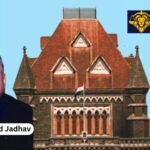Supreme Court Clears Man Previously Condemned to Death in Family Murder Case
The Supreme Court has overturned the conviction and death sentence of a man accused of murdering his mother, wife, and two-year-old daughter, stating that the prosecution failed to establish a conclusive sequence of events.
The judgment was handed down by Justices BR Gavai, Prashant Kumar Mishra, and KV Viswanathan. Justice Gavai announced:
“The prosecution’s inability to establish the sequence of circumstances…and given that the case is built on circumstantial evidence, it has not been possible to demonstrate a conclusive sequence leading to […] Consequently, the appeal is granted.”
Initially, Vishwajeet Kerba Masalkar was found guilty by the Trial Court under Sections 302, 307, and 201 of the IPC, and the sentence was later upheld by the Bombay High Court, which deemed it a “rarest of the rare” case warranting the death penalty.
The High Court underscored the premeditated and ruthless nature of the killings, noting, “The accused has attempted to destroy the very foundation of society by eliminating his family.” This decision profoundly disturbed the court’s moral sensibility.
Masalkar then sought relief at the Supreme Court.
Background
Employed as a Facility Executive in Pune, Masalkar reported a robbery at his residence where his family members were killed, and a neighbor was injured.
The police registered the case under Sections 302 and 397 of the IPC following this report. However, investigations revealed no theft of cash or jewelry, nor any forced entry. Further findings suggested Masalkar was involved in an extramarital affair and led police to suspect him of the murders and the neighbor’s injury, who might have witnessed the events. Masalkar was subsequently arrested after the probe.
Following the investigation, the Trial Judge convicted and sentenced Masalkar to death. His appeal to the High Court followed.
At the High Court, the State’s lawyer argued that Masalkar’s initial claim of a theft, which supposedly led to the deaths, was a diversion. Later, it was found that the purportedly stolen jewelry was hidden behind a photo frame in the home, and a hammer, believed to be the murder weapon, was retrieved based on Masalkar’s information.
In affirming the death penalty, the High Court assessed the case’s aggravating and mitigating factors, stating, “The balance clearly favors the aggravating factors, confirming this as a rarest of rare case. The Supreme Court has emphasized that such determinations should reflect societal views rather than individual judicial perspectives, considering whether society itself would demand the death penalty for such a crime.”
Masalkar contested this finding in the Supreme Court.
Case Title: VISHWAJEET KERBA MASALKAR v. THE STATE OF MAHARASHTRA, Crl.A. No.213/2020


